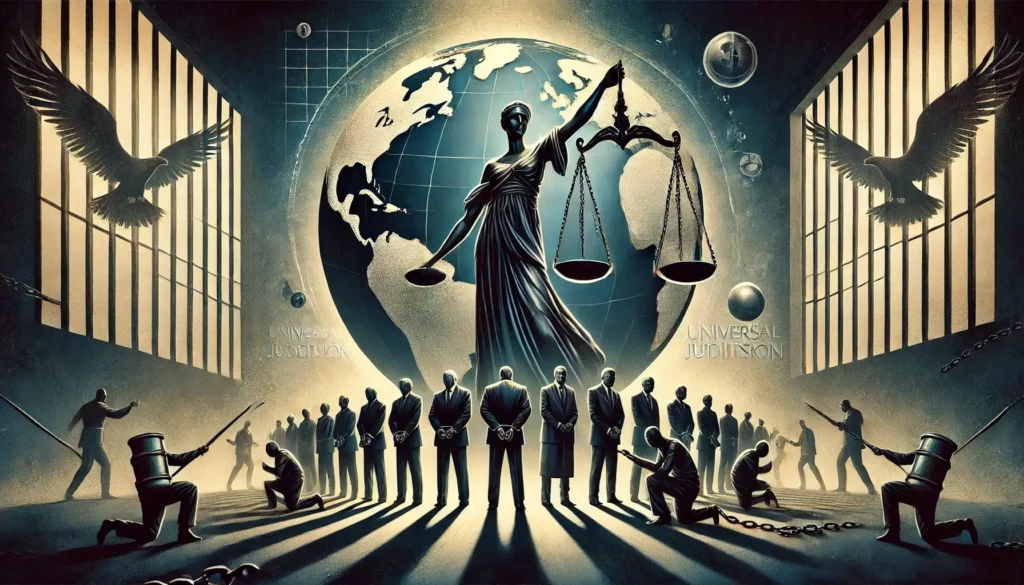Universal Jurisdiction Explained – When Law Replaces Politics
It sounds noble: the world united against war criminals. But universal jurisdiction often does less to deliver justice and more to chain politics in legal red tape. Instead of citizens deciding through leaders, lawyers and activists step in — unelected, unaccountable, and armed with court summons.
Table of contents
What Is Universal Jurisdiction?
Universal jurisdiction says: some crimes are so heinous (genocide, torture, crimes against humanity) that any court, anywhere, can prosecute them.
- No need for a direct connection.
- No need for the accused to even set foot in that country.
On paper, it looks like global justice. In practice, it’s a legal minefield.
How It Shows Up in Practice
- Pinochet (1998): Spain tried to prosecute Chile’s former dictator while he was in London.
- Israeli officials (2009): threatened with arrest warrants in Europe over Gaza.
- Bush & Kissinger: multiple failed attempts to haul U.S. leaders into foreign courts.
The pattern: legal tools aimed at democratic leaders who follow laws — not at dictators who ignore them.
Who Benefits? Who Doesn’t?
Winners:
- NGOs and activist lawyers: new stage for influence.
- Elites in global institutions: leverage over national leaders.
Losers:
- Elected politicians: chilled decision-making.
- Citizens: less room for pragmatic diplomacy, more paralysis.
- Victims in authoritarian states: their leaders are untouchable.
The Consequences
- Diplomatic paralysis: leaders avoid travel for fear of arrest.
- One-sided accountability: democracies restrained, autocracies ignore it.
- Law over politics: unelected courts steer decisions meant for voters.
What starts as justice risks becoming a straightjacket on democracy itself.
Conclusion
Universal jurisdiction began as a promise of global justice. But today, it often empowers lawyers over leaders, activists over citizens, courts over politics. What was meant to punish dictators instead limits democracies.
👉 Want the bigger picture on how power really works? Visit our Politics of Power Explainer Hub to see how leaders, corporations, and ideologies battle for control.
FAQ
What is universal jurisdiction in simple terms?
It means any court can try certain crimes, no matter where they happened.
Why is it controversial?
Because it often targets democratic leaders while dictators stay safe.
Who benefits from universal jurisdiction?
Activists and international elites — not ordinary citizens.
What’s the risk?
Politics gets replaced by courtroom battles, undermining sovereignty.



